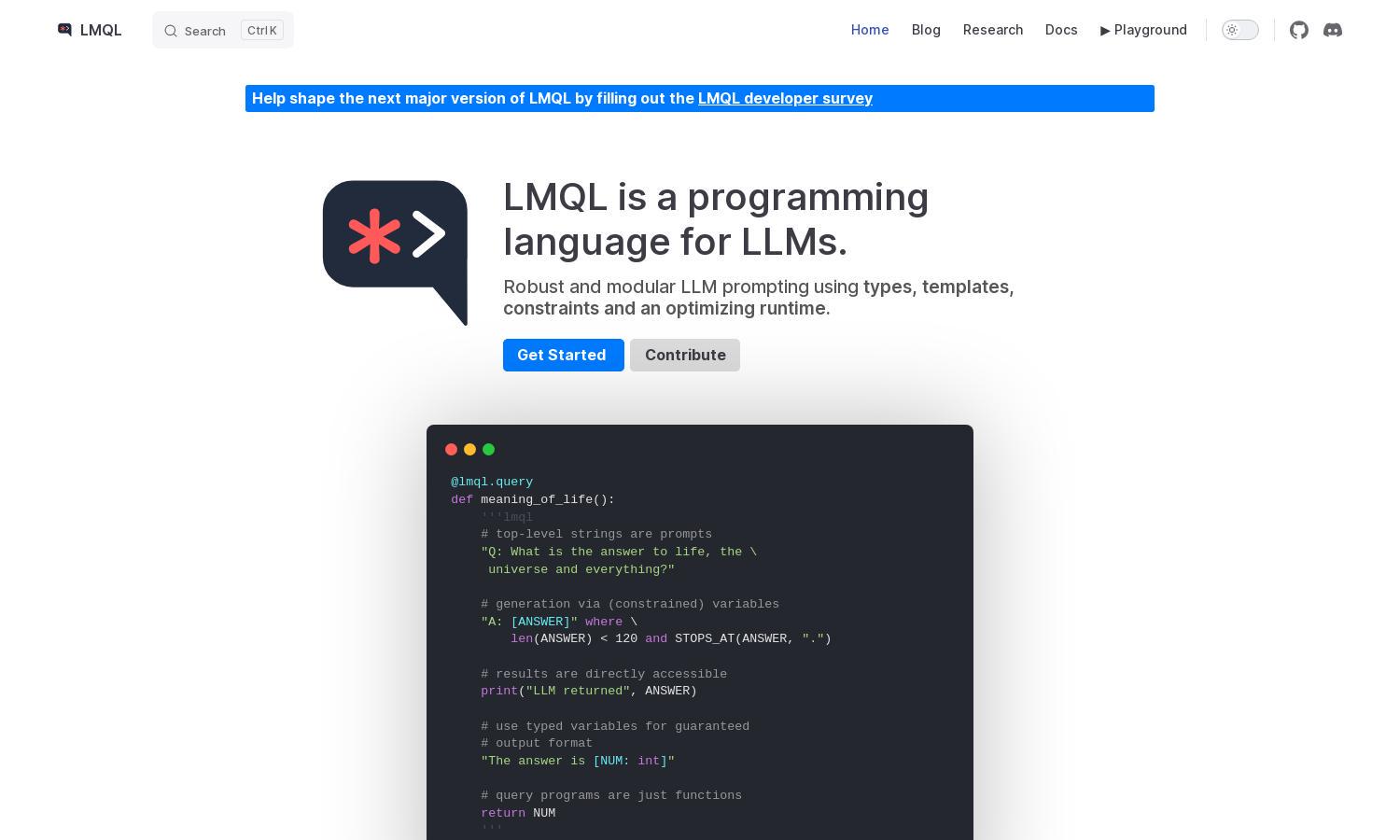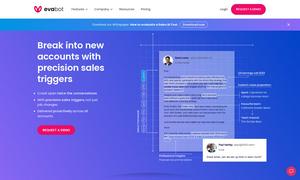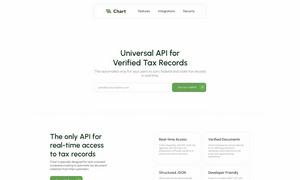LMQL

About LMQL
LMQL is a unique programming language engineered for seamless interaction with large language models (LLMs). It enables developers to create robust backend systems using modularized queries and constraints. With easy-to-use syntax and functionalities, LMQL simplifies complex data handling and enhances the efficiency of LLM prompting.
LMQL offers various pricing plans tailored to different user needs, enhancing access to its features. Each subscription tier provides unique benefits, including advanced capabilities and priority support, ensuring users gain maximum value. Upscaling is recommended for users who require extensive functionality and high-volume usage of LLM queries.
The user interface of LMQL is designed for simplicity and efficiency, offering an intuitive layout that ensures a seamless experience. Features such as modular querying and integrated prompts elevate usability, making it easy for users to navigate and implement advanced LLM interactions. LMQL prioritizes user engagement and satisfaction.
How LMQL works
Users begin their journey with LMQL by signing up and accessing its code editor. They can input queries using its straightforward syntax that supports types and modular prompts. As users develop functions, they can easily integrate various LLM backends with just a line of code, streamlining their application process. LMQL's optimizing runtime enhances prompt execution, maximizing output efficiency.
Key Features for LMQL
Modular Querying
LMQL's modular querying feature empowers users to streamline their LLM interactions. This approach allows developers to create reusable prompt components, significantly enhancing code efficiency and reducing redundancy. By leveraging this feature, users can quickly adapt their queries for different contexts, saving both time and resources.
Nested Queries
LMQL introduces nested queries, facilitating procedural programming within prompting. This key feature allows developers to implement complex instructions locally, enhancing the clarity and organization of their code. By utilizing nested queries in LMQL, users can improve prompt component reusability and maintainability, resulting in more efficient workflows.
Cross-Backend Portability
LMQL's cross-backend portability feature enables seamless switching between various LLM backends. Developers can effortlessly adjust their code with a single line, maximizing flexibility and adaptability in their projects. This distinct capability ensures that LMQL user applications remain versatile and scalable across different platforms.
You may also like:








